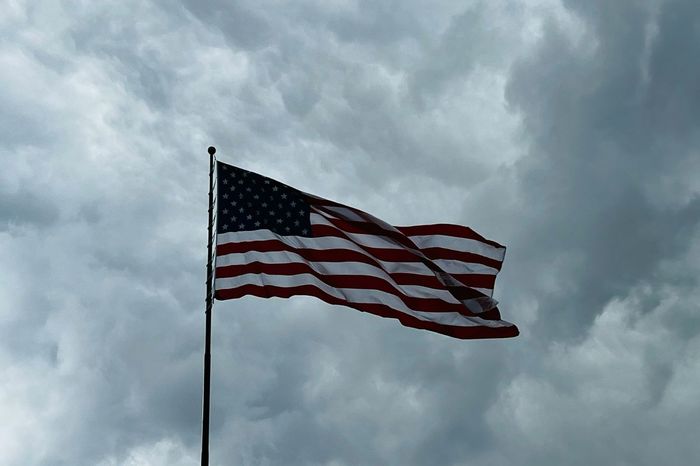Love-all triangle: Challengers redefines mainstream romance
The film is remarkable in its depiction of two Hollywood taboos: bisexuality and polyamory

Luca Guadagnino’s latest accomplishment Challengers — a sexy, sporty epic charting the ups and downs of a biblical-level love triangle — recently hit cinemas. Its reception has been … intense. Guadagnino’s past work has always focused on intimate, all-consuming love and desire (to the point of actual consumption in 2022’s Bones and All) so it was no surprise that the twisted relationships between Challengers’ protagonists Tashi, Art and Patrick have people talking. But why are the dynamics between these ruthless, chaotic pros so compelling?
“Challengers’ erotic drive comes not from sexually explicit content but from implication”
The film’s most famous scene (you know the one I’m talking about) may hold the answer. Back in 2006, Tashi Duncan is America’s next great tennis star and has caught the attention of Junior US Open Doubles winners Art Donaldson and Patrick Zweig. One night, after a party in Tashi’s honour, the three teenagers engage in a strange, charged but ultimately chaste tryst in the boys’ hotel room, resulting in a prolonged and passionate make-out session between Art and Patrick with Tashi watching on, smirking. Thus, the bisexual seed is planted. It is then watered throughout the film by the male presence on Patrick’s dating apps, an intimate churro munching shot and Tashi’s constant references to being a “homewrecker”. Though Art initially assures her that he and Patrick are “not together”, this is arguably false; if not explicitly joined romantically or sexually, the boys are nevertheless inextricable. Their lives and desires are so intertwined that it is sometimes hard to differentiate between them and their actions.
“Challengers could be Guadagnino’s magnum opus”
What shall henceforth be known as the “threesome scene” is remarkable as it explores, without didacticism or the overt “representation” that characterises teen dramas like Heartstopper (where labels and sexualities are treated as commodities rather than complex facets of the human experience), two Hollywood taboos: polyamory and bisexuality. In our hetero, monogamy-focused society, any deviation from the norm in media leads the work to be considered “alternative”, its audience predominantly those in the margins whom it represents. Challengers is groundbreaking in that it is a mainstream, widely distributed film that manages to explore human intimacy and hunger without boxing or compartmentalising any of the characters (in the way that Guadagnino’s We Are Who We Are and the questionable Call Me By Your Name did). It is an exercise in “un-labelling”, in seeing a character holistically rather than as a series of collated characteristics. While no character is explicitly bisexual, their behaviour hints at a sexual and amorous fluidity that any other mainstream film would consider too risky to depict.
Challengers’ erotic drive comes not from sexually explicit content but from implication. Sex is symbolised by Art’s tennis tic: placing the ball in the centre of the racket handle before he serves. Tashi and Patrick kiss but a fight prevents them from going further. Tashi and Art begin an intimate encounter with their daughter asleep in the next room but a series of carefully choreographed flinches and shifts results in sleep, nothing else. While interlinked, it is tennis, not sex, that provides the film’s cathartic, angry release. This could be why The New Yorker suggested that the film has “given people hope in an era when the Hollywood sex scene is on the decline.” Challengers has proved that, in an age of purity culture and sex-related moral panics, the erotic can still triumph, even if not in the way we expect.
For me, Challengers could be Guadagnino’s magnum opus; it had the fire Call Me By Your Name lacked and the kind of ambiguous sexual representation we need more of in mainstream media. At the very least, it’s immensely enjoyable to watch Zendaya refer to Art and Patrick as her “little white boys.”
 News / Cambridge student numbers fall amid nationwide decline14 April 2025
News / Cambridge student numbers fall amid nationwide decline14 April 2025 News / First candidate to announce chancellorship bid pledges to tackle bullying 12 April 2025
News / First candidate to announce chancellorship bid pledges to tackle bullying 12 April 2025 Lifestyle / First year, take two: returning after intermission14 April 2025
Lifestyle / First year, take two: returning after intermission14 April 2025 News / Rowing row continues as Oxford and Cambridge scrap women’s trial race9 April 2025
News / Rowing row continues as Oxford and Cambridge scrap women’s trial race9 April 2025 News / PETA urges Cambridge dictionary to change ‘derogatory’ rat definition11 April 2025
News / PETA urges Cambridge dictionary to change ‘derogatory’ rat definition11 April 2025




